Last week, England’s new government said it would abandon the previous government’s stimulus program and introduce the austerity measures required to pay down its estimated $1 trillion in debts. That means cutting public spending, laying off workers, reducing consumption, and increasing unemployment and bankruptcies. It also means shrinking the money supply, since virtually all “money” today originates as loans or debt. Reducing the outstanding debt will reduce the amount of money available to pay workers and buy goods, precipitating depression and further economic pain.
The financial sector has sometimes been accused of shrinking the money supply intentionally, in order to increase the demand for its own products. Bankers are in the debt business, and if governments are allowed to create enough money to keep themselves and their constituents out of debt, lenders will be out of business. The central banks charged with maintaining the banking business therefore insist on a “stable currency” at all costs, even if it means slashing services, laying off workers, and soaring debt and interest burdens. For the financial business to continue to boom, governments must not be allowed to create money themselves, either by printing it outright or by borrowing it into existence from their own government-owned banks.
Today this financial goal has largely been achieved. In most countries, 95% or more of the money supply is created by banks as loans (or “credit”). The small portion issued by the government is usually created just to replace lost or worn out bills or coins, not to fund new government programs. Early in the twentieth century, about 30% of the British currency was issued by the government as pounds sterling or coins, versus only about 3% today. In the U.S., only coins are now issued by the government. Dollar bills (Federal Reserve Notes) are issued by the Federal Reserve, which is privately owned by a consortium of banks.
Banks advance the principal but not the interest necessary to pay off their loans; and since bank loans are now virtually the only source of new money in the economy, the interest can only come from additional debt. For the banks, that means business continues to boom; while for the rest of the economy, it means cutbacks, belt-tightening and austerity. Since more must always be paid back than was advanced as credit, however, the system is inherently unstable. When the debt bubble becomes too large to be sustained, a recession or depression is precipitated, wiping out a major portion of the debt and allowing the whole process to begin again. This is called the “business cycle,” and it causes markets to vacillate wildly, allowing the monied interests that triggered the cycle to pick up real estate and other assets very cheaply on the down-swing.
The financial sector, which controls the money supply and can easily capture the media, cajoles the populace into compliance by selling its agenda as a “balanced budget,” “fiscal responsibility,” and saving future generations from a massive debt burden by suffering austerity measures now. Bill Mitchell, Professor of Economics at the University of New Castle in Australia, calls this “deficit terrorism.” Bank-created debt becomes more important than schools, medical care or infrastructure. Rather than “providing for the general welfare,” the purpose of government becomes to maintain the value of the investments of the government’s creditors.
England Dons the Hair Shirt
England’s new coalition government has just bought into this agenda, imposing on itself the sort of fiscal austerity that the International Monetary Fund (IMF) has long imposed on Third World countries, and has more recently imposed on European countries, including Latvia, Iceland, Ireland and Greece. Where those countries were forced into compliance by their creditors, however, England has tightened the screws voluntarily, having succumbed to the argument that it must pay down its debts to maintain the market for its bonds.
Deficit hawks point ominously to Greece, which has been virtually squeezed out of the private bond market because nobody wants its bonds. Greece has been forced to borrow from the IMF and the European Monetary Union (EMU), which have imposed draconian austerity measures as conditions for the loans. Like a Third World country owing money in a foreign currency, Greece cannot print Euros or borrow them from its own central bank, since those alternatives are forbidden under EMU rules. In a desperate attempt to save the Euro, the European Central Bank recently bent the rules by buying Greek bonds on the secondary market rather than lending to the Greek government directly, but the ECB has said it would “sterilize” these purchases by withdrawing an equivalent amount of liquidity from the market, making the deal a wash. (More on that below.)
Greece is stuck in the debt trap, but the UK is not a member of the EMU. Although it belongs to the European Union, it still trades in its own national currency, which it has the power to issue directly or to borrow from its own central bank. Like all central banks, the Bank of England is a “lender of last resort,” which means it can create money on its books without borrowing first. The government owns the Bank of England, so loans from the bank to the government would effectively be interest-free; and as long as the Bank of England is available to buy the bonds that don’t get sold on the private market, there need be no fear of a collapse of the value of the UK’s bonds.
The “deficit terrorists,” however, will have none of this obvious solution, ostensibly because of the fear of “hyperinflation.” A June 9 guest post by “Cameroni” on Rick Ackerman’s financial website takes this position. Titled “Britain Becomes the First to Choose Deflation,” it begins:
“David Cameron’s new Government in England announced Tuesday that it will introduce austerity measures to begin paying down the estimated one trillion (U.S. value) in debts held by the British Government. . . . [T]hat being said, we have just received the signal to an end to global stimulus measures -- one that puts a nail in the coffin of the debate on whether or not Britain would ‘print’ her way out of the debt crisis. . . . This is actually a celebratory moment although it will not feel like it for most. . . . Debts will have to be paid. . . . [S]tandards of living will decline . . . [but] it is a better future than what a hyperinflation would bring us all.”
Hyperinflation or Deflation?
The dreaded threat of hyperinflation is invariably trotted out to defeat proposals to solve the budget crises of governments by simply issuing the necessary funds, whether as debt (bonds) or as currency. What the deficit terrorists generally fail to mention is that before an economy can be threatened with hyperinflation, it has to pass through simple inflation; and governments everywhere have failed to get to that stage today, although trying mightily. Cameroni observes:
“[G]overnments all over the globe have already tried stimulating their way out of the recent credit crisis and recession to little avail. They have attempted fruitlessly to generate even mild inflation despite huge stimulus efforts and pointless spending.”
In fact, the money supply has been shrinking at an alarming rate. In a May 26 article in The Financial Times titled “US Money Supply Plunges at 1930s Pace as Obama Eyes Fresh Stimulus,” Ambrose Evans-Pritchard writes:
“The stock of money fell from $14.2 trillion to $13.9 trillion in the three months to April, amounting to an annual rate of contraction of 9.6pc. The assets of institutional money market funds fell at a 37pc rate, the sharpest drop ever.
“’It’s frightening,’ said Professor Tim Congdon from International Monetary Research. ‘The plunge in M3 has no precedent since the Great Depression. The dominant reason for this is that regulators across the world are pressing banks to raise capital asset ratios and to shrink their risk assets. This is why the US is not recovering properly,’ he said.”
Too much money can hardly have been pumped into an economy in which the money supply is shrinking. But Cameroni concludes that since the stimulus efforts have failed to put needed money back into the money supply, the stimulus program should be abandoned in favor of its diametrical opposite -- belt-tightening austerity. He admits that the result will be devastating:
“[I]t will mean a long, slow and deliberate winding down until solvency is within reach. It will mean cities, states and counties will go bankrupt and not be rescued. And it will be painful. Public spending will be cut. Consumption could decline precipitously. Unemployment numbers may skyrocket and bankruptcies will stun readers of daily blogs like this one. It will put the brakes on growth around the world. . . . The Dow will crash and there will be ripple effects across the European union and eventually the globe. . . . Aid programs to the Third world will be gutted, and I cannot yet imagine the consequences that will bring to the poorest people on earth.”
But it will be “worth it,” says Cameroni, because it beats the inevitable hyperinflationary alternative, which “is just too distressing to consider.”
Hyperinflation, however, is a bogus threat, and before we reject the stimulus idea, we might ask why these programs have failed. Perhaps because they have been stimulating the wrong sector of the economy, the non-producing financial middlemen who precipitated the crisis in the first place. Governments have tried to “reflate” their flagging economies by throwing budget-crippling sums at the banks, but the banks have not deigned to pass those funds on to businesses and consumers as loans. Instead, they have used the cheap funds to speculate, buy up smaller banks, or buy safe government bonds, collecting a tidy interest from the very taxpayers who provided them with this cheap bailout money. Indeed, banks are required by their business models to pursue those profits over risky loans. Like all private corporations, they are there not to serve the public interest but to make money for their shareholders.
Seeking Solutions
The alternative to throwing massive amounts of money at the banks is not to further starve and punish businesses and individuals but to feed some stimulus to them directly, with public projects that provide needed services while creating jobs. There are many successful precedents for this approach, including the public works programs of England, Canada, Australia and New Zealand in the 1930s, 1940s and 1950s, which were funded with government-issued money either borrowed from their central banks or printed directly. The Bank of England was nationalized in 1946 by a strong Labor government that funded the National Health Service, a national railway service, and many other cost-effective public programs that served the economy well for decades afterwards.
In Australia during the current crisis, a stimulus package in which a cash handout was given directly to the people has worked temporarily, with no negative growth (recession) for two quarters, and unemployment held at around 5%. The government, however, borrowed the extra money privately rather than issuing it publicly, out of a misguided fear of hyperinflation. Better would have been to give interest-free credit through its own government-owned central bank to individuals and businesses agreeing to invest the money productively.
The Chinese have done better, expanding their economy at over 9% throughout the crisis by creating extra money that was mainly invested in public infrastructure.
The EMU countries are trapped in a deadly pyramid scheme, because they have abandoned their sovereign currencies for a Euro controlled by the ECB. Their deficits can only be funded with more debt, which is interest-bearing, so more must always be paid back than was borrowed. The ECB could provide some relief by engaging in “quantitative easing” (creating new Euros), but it has insisted it would do so only with “sterilization” – taking as much money out of the system as it puts back in. The EMU model is mathematically unsustainable and doomed to fail unless it is modified in some way, either by returning economic sovereignty to its member countries, or by consolidating them into one country with one government.
A third possibility, suggested by Professor Randall Wray and Jan Kregel, would be to assign the ECB the role of “employer of last resort,” using “quantitative easing” to hire the unemployed at a basic wage.
A fourth possibility would be for member countries to set up publicly-owned “development banks” on the Chinese model. These banks could issue credit in Euros for public projects, creating jobs and expanding the money supply in the same way that private banks do every day when they make loans. Private banks today are limited in their loan-generating potential by the capital requirement, toxic assets cluttering their books, a lack of creditworthy borrowers, and a business model that puts shareholder profit over the public interest. Publicly-owned banks would have the assets of the state to draw on for capital, a clean set of books, a mandate to serve the public, and a creditworthy borrower in the form of the nation itself, backed by the power to tax.
Unlike the EMU countries, the governments of England, the United States, and other sovereign nations can still borrow from their own central banks, funding much-needed programs essentially interest-free. They can but they probably won’t, because they have been deceived into relinquishing that sovereign power to an overreaching financial sector bent on controlling the money systems of the world privately and autocratically. Professor Carroll Quigley, an insider groomed by the international bankers, revealed this plan in 1966, writing in Tragedy and Hope:
“[T]he powers of financial capitalism had another far-reaching aim, nothing less than to create a world system of financial control in private hands able to dominate the political system of each country and the economy of the world as a whole. This system was to be controlled in a feudalist fashion by the central banks of the world acting in concert, by secret agreements arrived at in frequent private meetings and conferences.”
Just as the EMU appeared to be on the verge of achieving that goal, however, it has started to come apart at the seams. Sovereignty may yet prevail.
Ellen Brown is a frequent contributor to Global Research. Global Research Articles by Ellen Brown

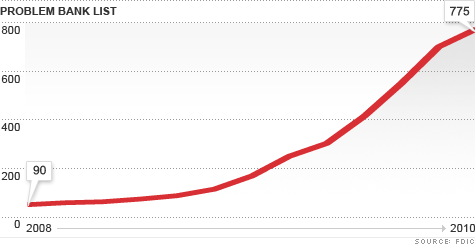
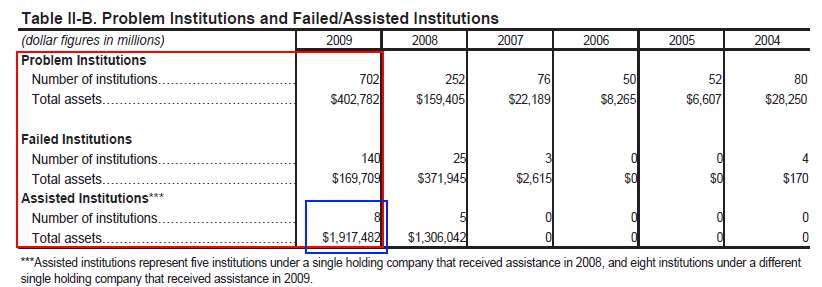
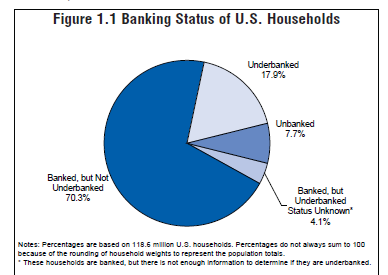

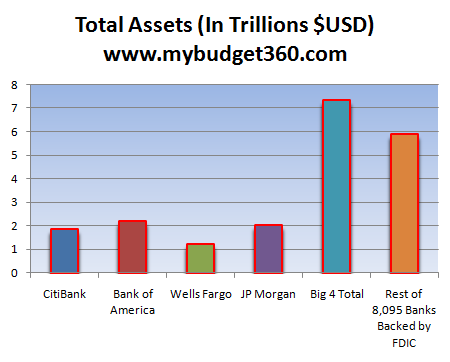




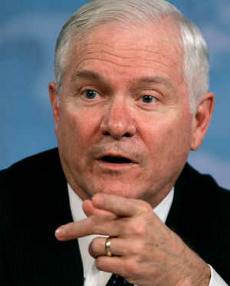 The number given is based on estimates of the size of Iran’s long range missile arsenal, and the fact that the best of Iran’s missiles has a maximum range which would allow them, if fired from Iran’s western border, to reach the southeastern tip of Europe.
The number given is based on estimates of the size of Iran’s long range missile arsenal, and the fact that the best of Iran’s missiles has a maximum range which would allow them, if fired from Iran’s western border, to reach the southeastern tip of Europe.